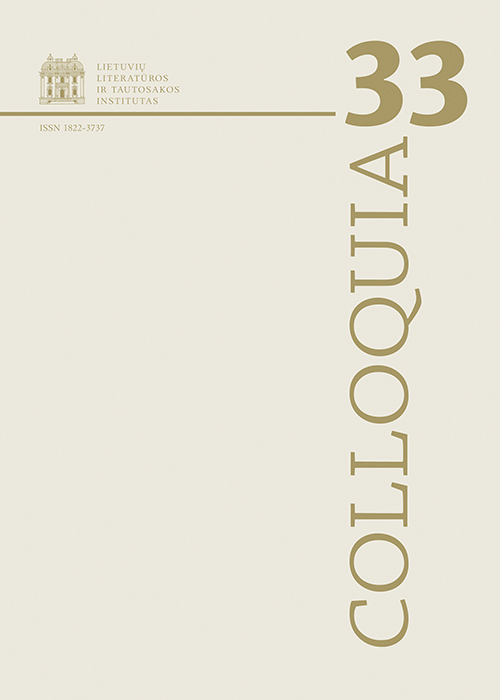Waiting for the Sequel: Serial novels and Early Readers of Lithuanian Periodicals
Abstract
In this analysis the author discusses the interplay between late nineteenth century readers and the first Lithuanian periodicals, proposing that the history of the Lithuanian press be seen as the writing of a single text. To interpret the reader-text relationship, the author draws on the concepts of Paul Ricoeur (who sees the text as offering a project for a possible world) and Rita Felski (who argues that recognition is a significant mark of the reader-text relationship) – their description of the interaction with the text and its restructuring of the reader’s world. The author posits that in this situation the collective authors of a text create a projection of the world and propose a way of being in it; as a result, the plots lived out by early readers who gradually became “heavy-handed scribes” become part of press history.
Recovery of voice and the need for a sequel emerge as the most important motifs in the reader’s inscription into press history. Recovery of voice is related to melodramatic expression, whose characteristics are manifest in translations of the Polish author Maria Rodziewiczówna’s novels. The promise of a sequel is guaranteed by the means of the texts’ distribution – their serialization in magazines. This writer’s work appears as a modification of positivist attitudes and a recognition-based invitation to the reader to inscribe herself/himself into the text. Rodziewiczówna’s melodramatic narrative establishes the most common kind of recognition structure – rituals of moral address appear as narratives of self-discovery, encouraging the reader to become part of the sequel.




